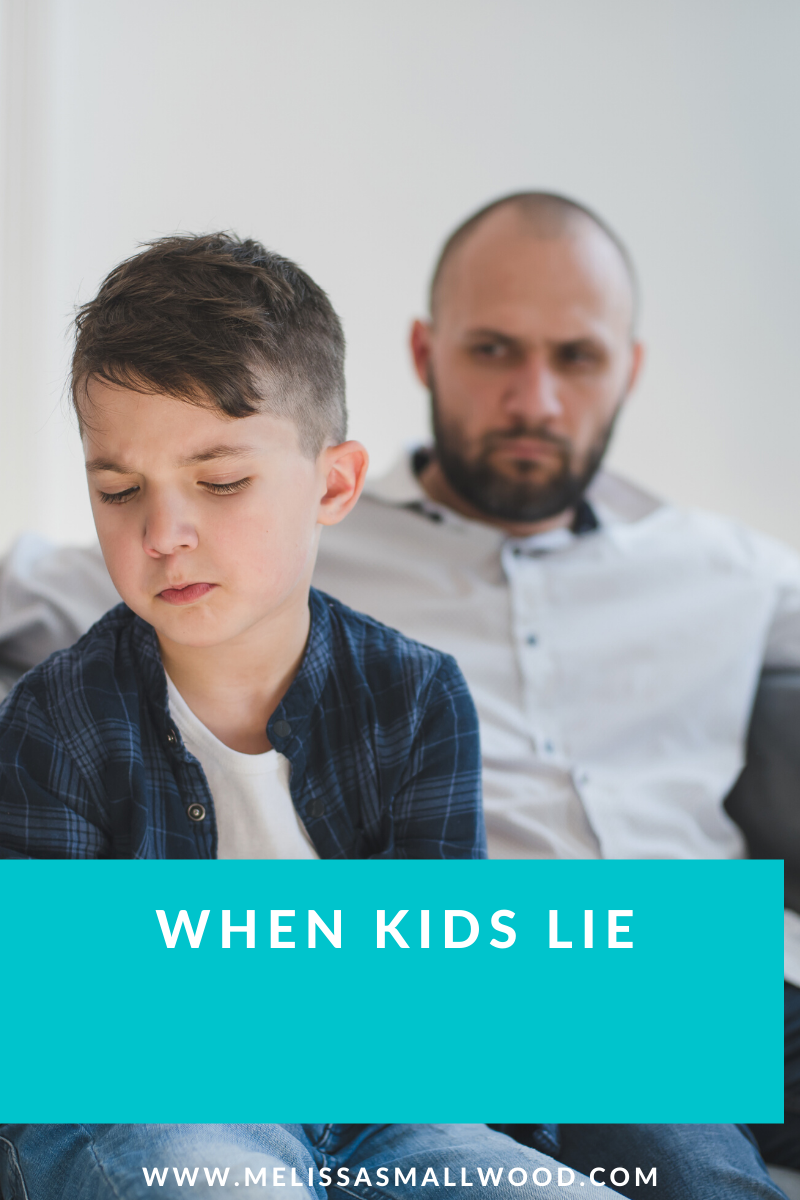When Kids Lie
Last week's #whatworkswednesday FB live video (you can watch it here) was about lying.
Lying can be a major problem, especially when raising kids from hard places. No one enjoys being lied to and we can tend to react in negative ways when a child lies. However, kids lie for a lot of different reasons and when we as parents take those lies personally it can set us up for a lot of conflict in our parent/child relationship. It's important to separate what is about you and what is not about you related to your child's behavior.
The first thing I want to do is help you understand the various reasons kids, especially kids with developmental trauma, lie and how we, as parents, can help our kids learn that lying isn't necessary in our families. Understanding the why behind certain inflammatory behaviors can help parents respond rather than react.

- Adults haven't been trustworthy. Our foster/adopted kids come with experiences outside of our home and many of those experiences have not been positive ones. As a parent, it is super important to consistently prove that you are an adult worthy of their trust. Follow through on your commitments and promises. Say what you mean and mean what you say.
- They've had negative experiences when telling the truth. Negative experiences create negative beliefs. Your child believes that lying serves a purpose (often times a protective purpose). The way they perceive the world causes them to believe that lying is necessary to keep them safe. As parents we need to set up an environment where telling the truth is always rewarded. Acknowledge when your child shares the truth with you, especially if it could lead to negative consequences and they choose to tell the truth anyway. Reinforce the positive response associated with telling the truth in your family.
- Honesty hasn't been modeled to them. Kids mirror what has been modeled. It is our responsibility to become a mirror of honesty to them. That means telling the truth, not letting them catch us slipping little white lies to our in laws or asking them to tell the person on the other line that we aren't available when we're sitting right beside them. They may have seen so much lying in their past that it is a normalized behavior and it's our job to help them change that perception.
- They're trying to retain relationship. Kids don't want us to be upset with them. They may lie in an attempt to avoid our disappointment in fear that we will withdraw our love and attention. It can take months and even years to build up the level of trust between us and them for the child to feel safe and secure enough in our relationship to trust us with the truth, especially if it might make us mad.
It's also important to remember that trauma has affected the development of your child's brain- both the feeling part (the limbic system) and the thinking part (the prefrontal cortex). When they are stuck in survival mode, they can't access the thinking part of their brain that could tell them lying isn't a good idea.
Creating an environment of honesty, trust and unconditional love is the best way to overcome a child's tendency to lie. In the meantime, don't take the behavior personally, respond versus reacting and value relationship over the need to prove anything to your child other than how much you love and value them.